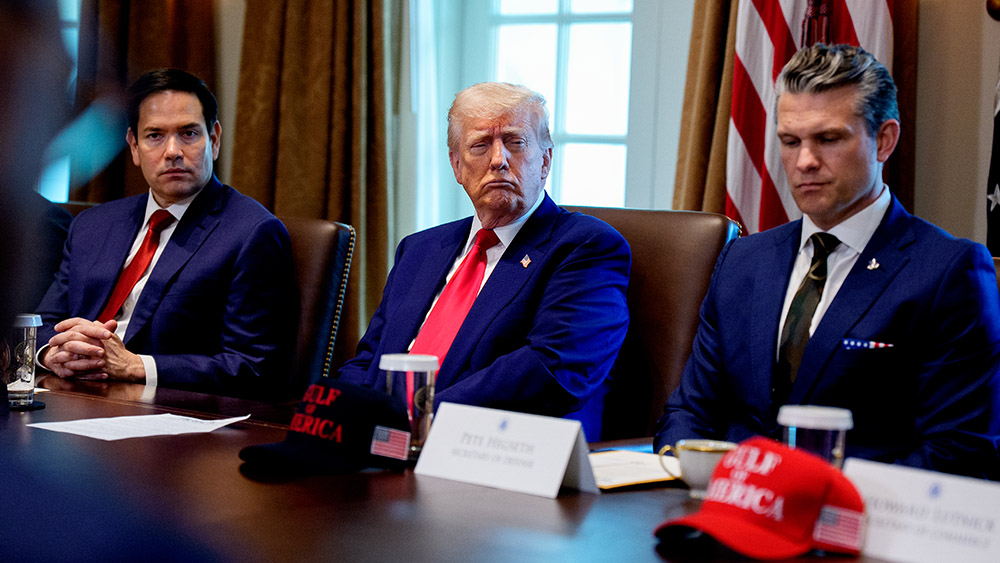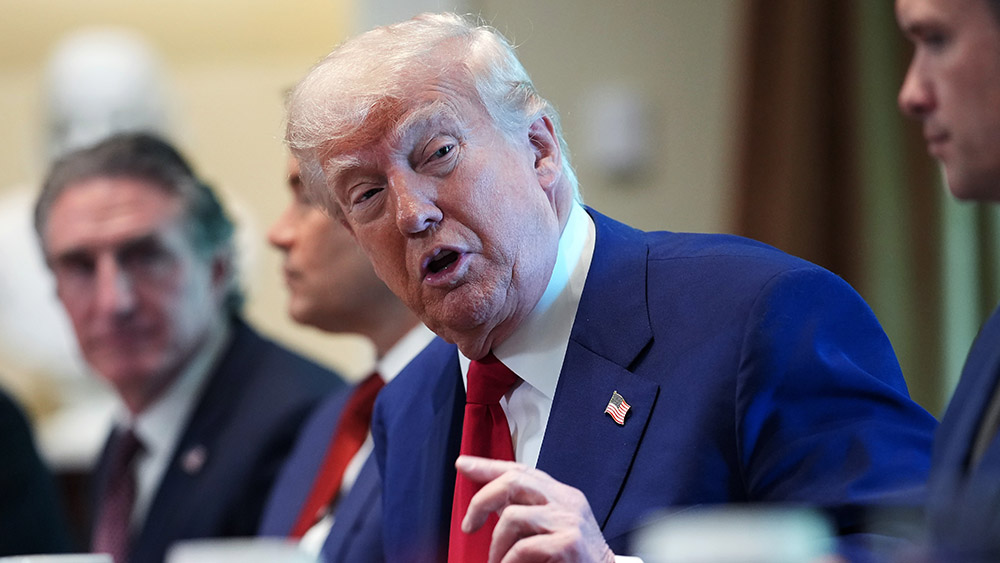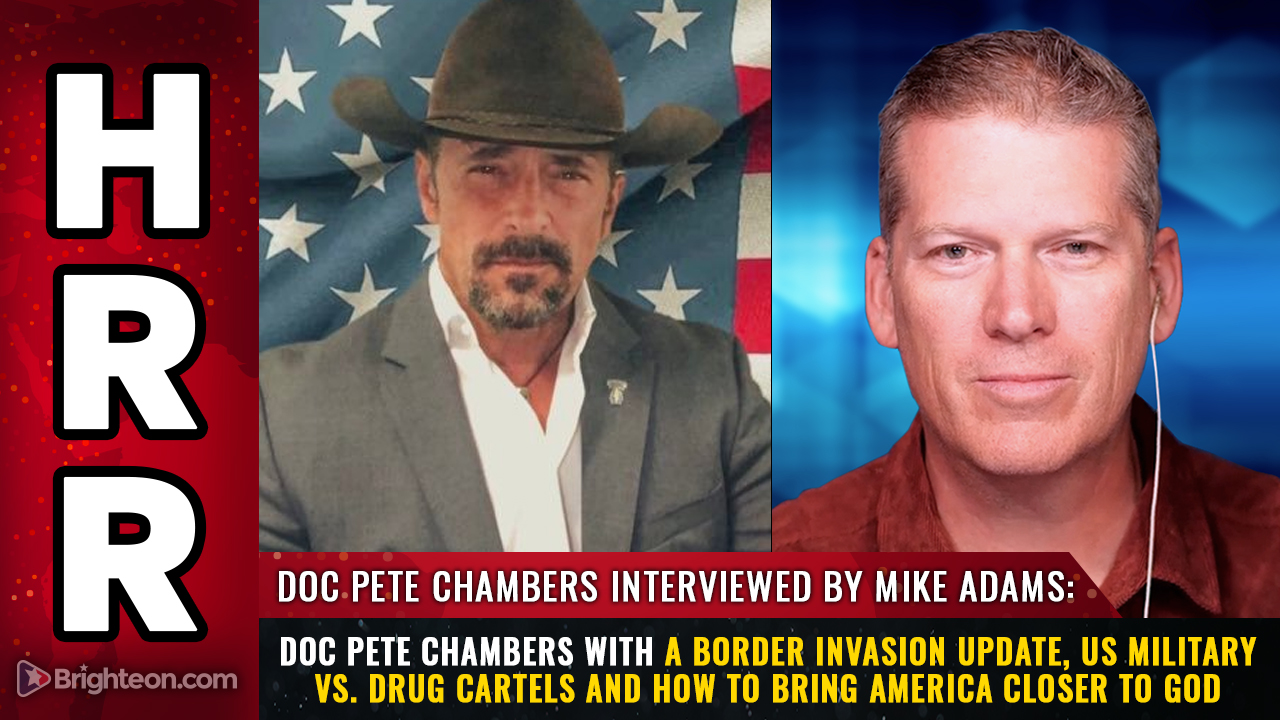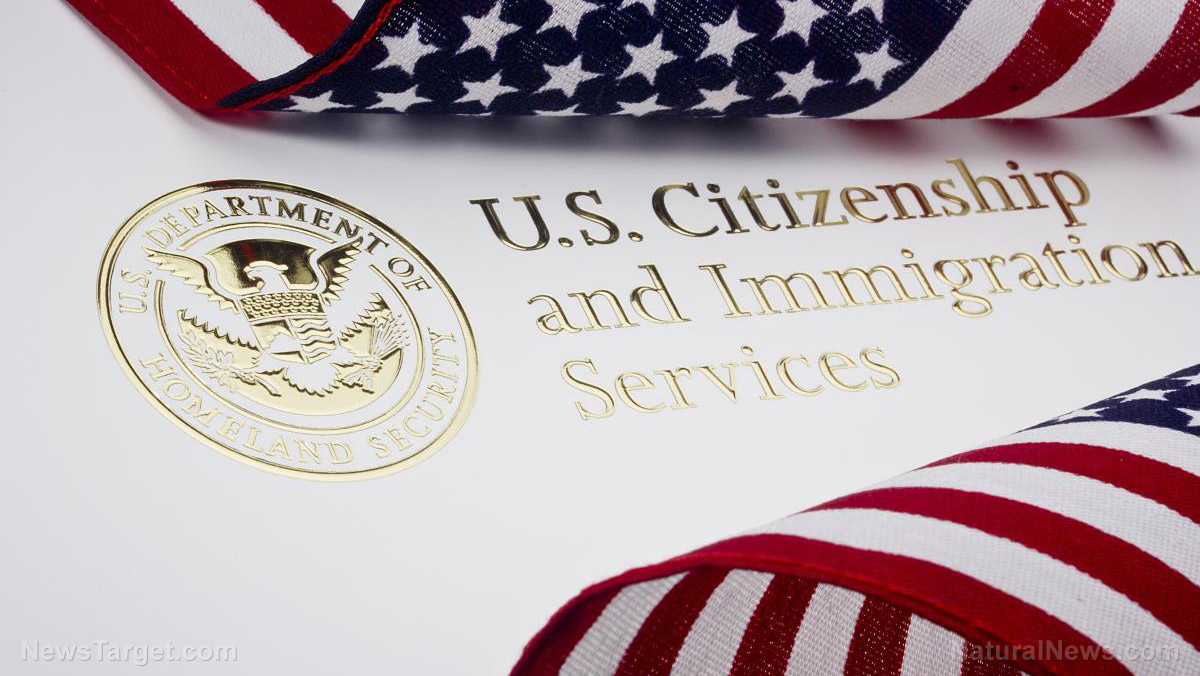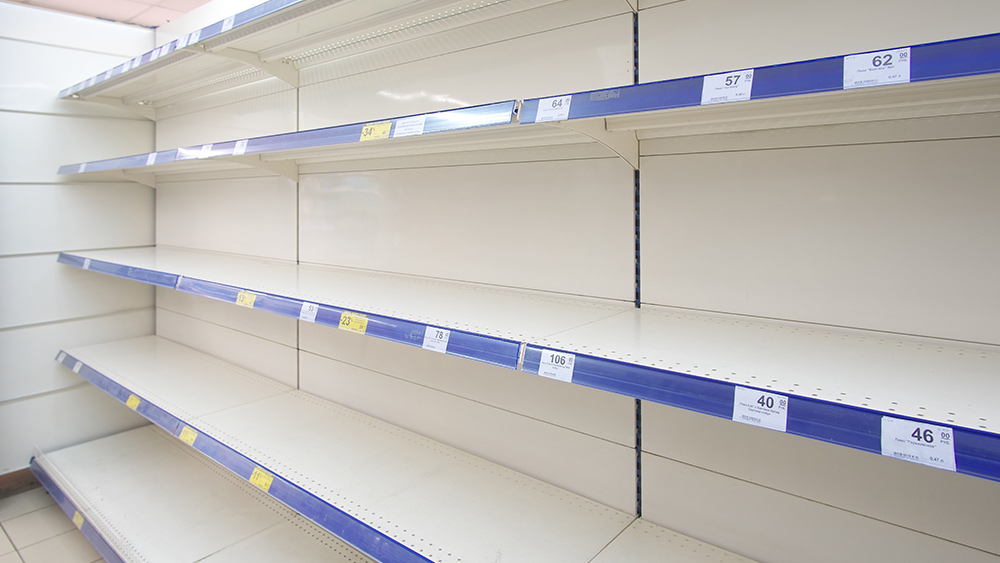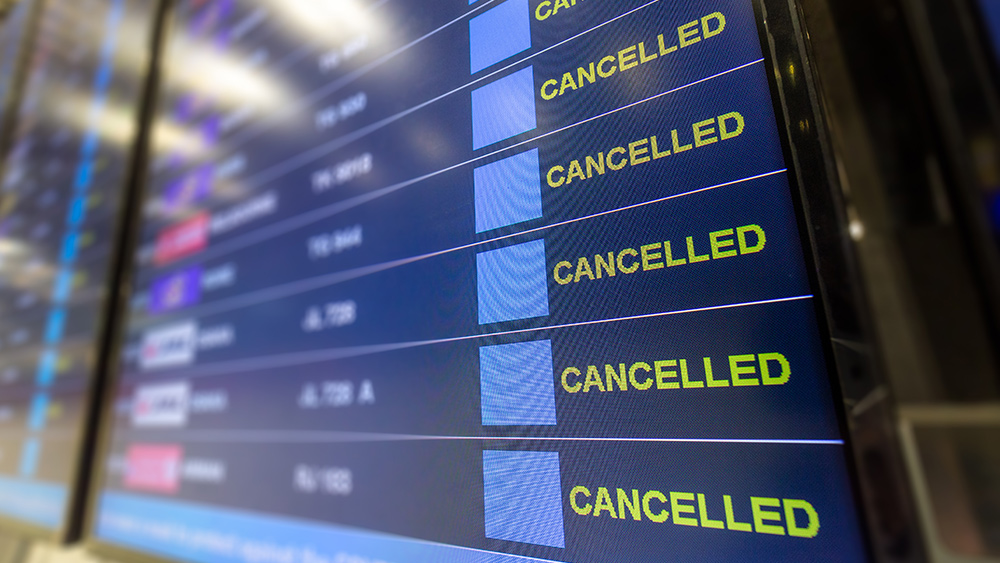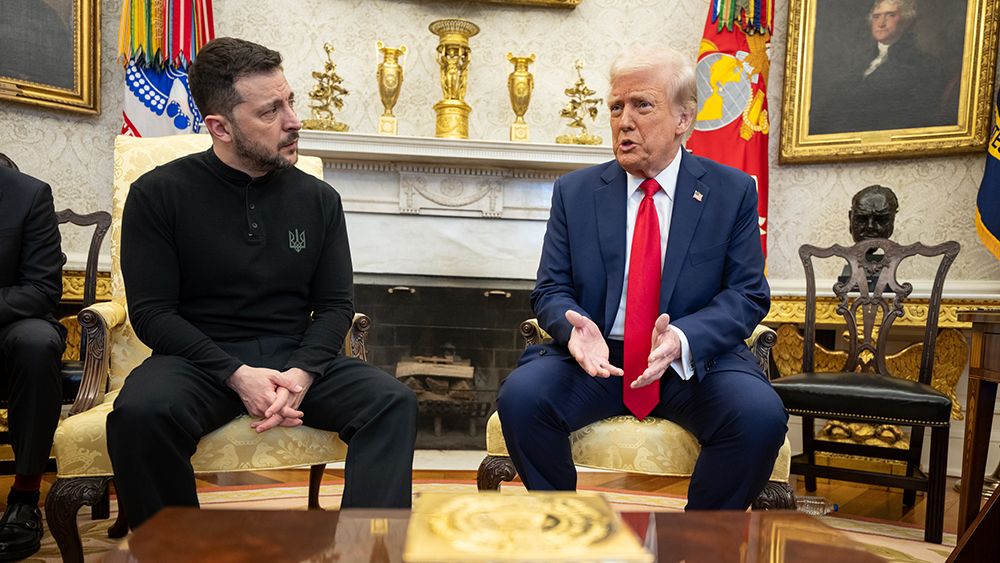Warren Buffett: Trump tariffs risk global economic “act of war”
05/06/2025 / By Willow Tohi
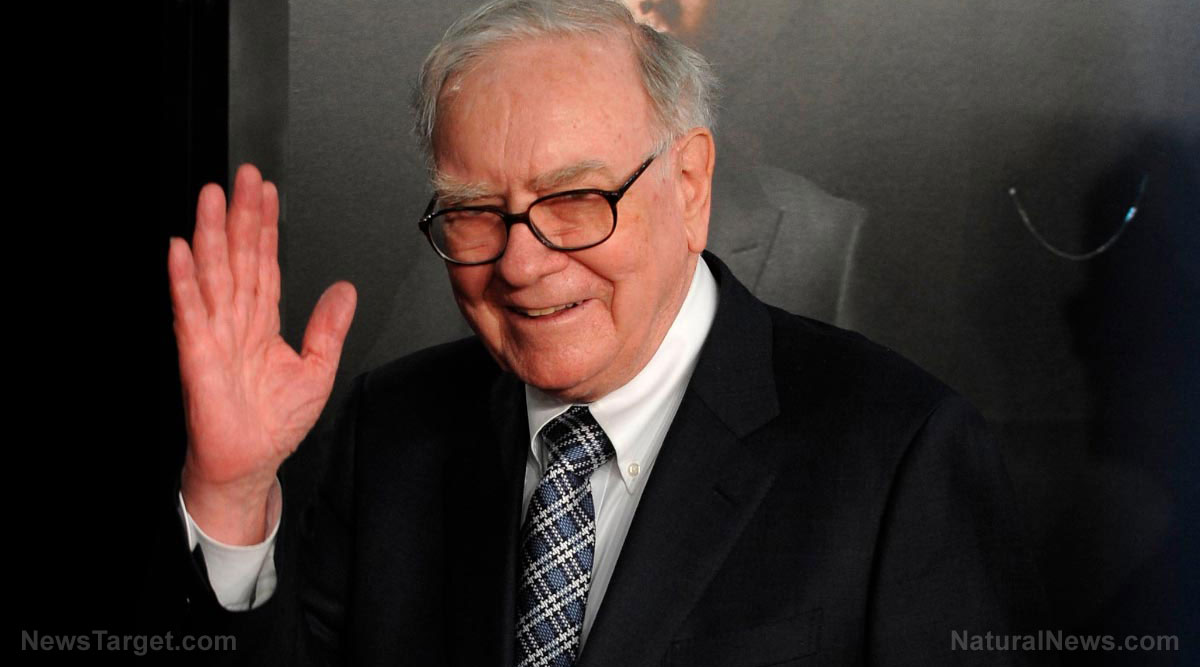
- Warren Buffett condemned Trump’s aggressive tariffs, calling them an “act of war” that threatens global economic stability, while avoiding direct mention of the president.
- The U.S. economy shrank for the first time in three years, with tariffs disrupting supply chains and causing market volatility (S&P 500 dropped 10% post-announcement). Berkshire Hathaway, however, outperformed the market, rising 18.9%.
- Buffett warned against protectionism, citing historical failures like Smoot-Hawley tariffs during the Great Depression. He emphasized that global prosperity benefits the U.S., framing trade as mutually beneficial, not zero-sum.
- Retaliatory tariffs (e.g., China’s 125% levies) and EU criticism have strained international relations, with businesses like GM projecting $5 billion in potential losses.
- Buffett’s stance signals corporate unease with Trump’s policies, but with midterms approaching, the White House remains committed. The debate over U.S. trade strategy – self-reliance vs. global partnership – intensifies as economic risks grow.
Legendary investor Warren Buffett delivered a blunt rebuke of President Donald Trump’s aggressive trade policies at Berkshire Hathaway’s annual shareholder meeting, warning that escalating tariffs amount to an “act of war” that risks global economic instability.
The remarks made during a four-hour session in Omaha, Nebraska highlighted deepening tensions between Wall Street and the White House as the U.S. economy shrinks for the first time in three years. Buffett, 94, avoided naming Trump directly but condemned the administration’s “Liberation Day” tariffs – a sweeping April initiative that imposes 10% to 245% levies on imports from over 90 countries – as counterproductive.
“Trade should not be a weapon,” he stated, arguing that such measures fostered hostility and stifled mutual prosperity. His warnings come as the IMF downgrades global growth forecasts and businesses scramble to navigate disrupted supply chains, with General Motors alone projecting $5 billion in potential tariff losses.
Buffett’s blueprint for trade: “Prosperity through partnership”
Buffett emphasized that balanced international trade, not protectionism, had fueled U.S. economic dominance historically. “The more prosperous the rest of the world becomes,” he said, “the more prosperous we’ll become and the safer we’ll feel.”
He criticized the idea of framing trade as a zero-sum game, cautioning that isolating the U.S. risked global resentment. “It’s a big mistake when you have 7.5 billion people that don’t like you very well,” he noted.
The Oracle of Omaha’s stance marked a departure from his 2018-2019 silence on tariffs, though he previously called such policies “bad things.” This year’s critique followed Berkshire Hathaway’s first-quarter earnings report, which highlighted the Fed’s “considerable uncertainty” over tariff fallout. The conglomerate’s $334 billion cash pile – nearly doubling since 2021 – hints at Buffett’s caution amid volatile markets.
Market volatility and White House pushback
Trump’s tariff regime has sparked immediate turbulence. The S&P 500 plummeted 10% post-announcement, its sharpest drop since the 2020 pandemic crash, before rebounding partially. In contrast, Berkshire’s shares rose 18.9% this year, outperforming the market by 22%, as the firm bolstered stakes in Japanese trading firms despite U.S. policy headwinds.
Analysts warn of broader economic ripple effects. “Demand destruction is the overarching concern,” said CFRA analyst Cathy Seifert. Berkshire investor Robin Nasser echoed that, noting, “Buffett’s stockpiled cash suggests he knows something we don’t.”
Historical parallels and strategic shifts
Buffett’s critique mirrors past global trade conflicts. Similar protectionist measures by the Brexit-era UK and 1930s America, when the Smoot-Hawley tariffs exacerbated the Great Depression, underscore the risks he highlighted. However, the scale of today’s tariffs is unprecedented, with over $1 trillion in annual trade targeted.
The fallout has deepened geopolitical rifts. China’s 125% retaliatory levies on U.S. exports – a record high – have slowed American sales of vehicles and agricultural goods, straining bilateral relations. Meanwhile, European Union leaders have called Trump’s policies “reckless,” threatening their own countermeasures.
A new era for trade and leadership
As Buffett announced his planned retirement by year’s end, naming Vice Chairman Greg Abel as successor, his final major policy statement signals a potential shift in corporate sentiment. For now, though, the president faces mounting pressure to reconsider tactics even as his supporters praise “Liberation Day” as fulfilling campaign promises to “make borders great again.”
With the U.S. economy in decline and global alliances fraying, Buffett’s words may intensify calls for dialogue over defiance. But with midterm elections looming and tariffs a central campaign issue, the White House appears resolute in its stance despite the risks.
The clash over trade policy underscores a broader societal divide: Should the U.S. prioritize self-reliance or global partnership? Buffett’s answer is clear, but for the American economy, the stakes have never been higher. As markets teeter and allies turn into adversaries, the next chapter of this economic battle may determine whether prosperity or peril defines the decade ahead.
Sources for this article include:
Submit a correction >>
Tagged Under:
Berkshire Hathaway, Bubble, Collapse, Dangerous, debt collapse, dollar demise, Donald Trump, economy, finance, Globalism, market crash, money supply, pensions, produts, risk, supply chain, tariffs, trade war, Warren Buffett
This article may contain statements that reflect the opinion of the author
RECENT NEWS & ARTICLES
COPYRIGHT © 2017 BIG GOVERNMENT NEWS

